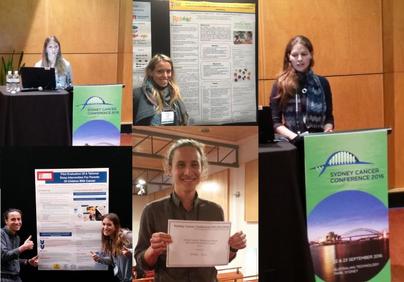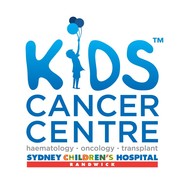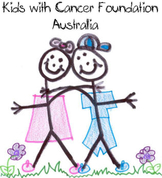
The conference theme was “Bridging research and practice”, aiming to focus on all of the important elements of cancer research that take basic research, performed in our laboratories, all the way to clinical practice. This meant that a wide variety of topics and areas were included: biomedical, public health, clinical and psychosocial research all brought together in the same conference.
There was also strong theme of personalised medicine and genomics throughout the conference, as the research community attempts to navigate a new era where a person’s genetics will come to inform many aspects of screening, diagnosis, treatment and survivorship.
There were so many interesting talks across the two days. Highlights of these included discussing the use of gene-environment interactions in public health interventions, how to deal with the ethical complexity surrounding communicating genetic risk information, tackling body image issues after treatment using self-compassionate expressive writing, how to make patient centred care a reality, methods of reducing a fear of cancer recurrence in survivors, and promoting healthy living after treatment.
Our own A/Prof Claire Wakefield presented a great talk spanning the range of projects the Behavioural Sciences Unit is currently undertaking in the area of genetics and cancer, discussing the importance of genetic information to families during and after treatment, current unmet needs regarding the communication of this information, and the psychosocial implications of, and perspectives regarding, new genetic technologies in paediatric cancer.
There was also a very interesting talk delivered by one of the community representatives (sometimes known as ‘consumer’ representatives), Alex Carmichael. There were several community representatives at the conference, all of whom were engaged in both listening and responding to the talks. In his talk, Alex Carmichael called for an increase in the impact of community representatives in research, as shared owners of the research conducted by all of these universities. He pointed to a current lack of data detailing the prevalence or utility of involving community members in research, and discussed some of the barriers he has experienced in navigating research relationships. His talk ended by expressing the need for a clear visualisation of how this relationship should work in the future, as he suggested that maybe the “equal partners” model fails to capture the complexities of this relationship, with an optimistic look forward to what could be achieved with everyone working together.
The conference ended with a series of “rapid fire” mini oral presentations by early career and postgraduate researchers. These 3 minute, 3 slide presentations were a great change of pace, an excellent way for some talented newcomers to show off their research, and were incredibly engaging. Four of our team presented talks here (pictured right, clockwise from top left); Janine Vetsch, Lauren Touyz, Claire Wakefield (on behalf of Sarah Ellis) and Alistair Lum, and all did an amazing job.
Excitingly, members of the Behavioural Sciences Unit team picked up not one, but two (!) awards at the closing ceremony, a huge achievement. Sarah Ellis’ poster entitled, ‘Pilot evaluation of a tailored sleep intervention for parents of children with cancer’ and Alistair Lum’s mini oral presentation, ‘Adding childhood cancer treatment to school: Accounting for the social and personal implications’ both received prizes, great work team!
The Behavioural Sciences Unit is Proudly Supported by the Kids with Cancer Foundation.


 RSS Feed
RSS Feed